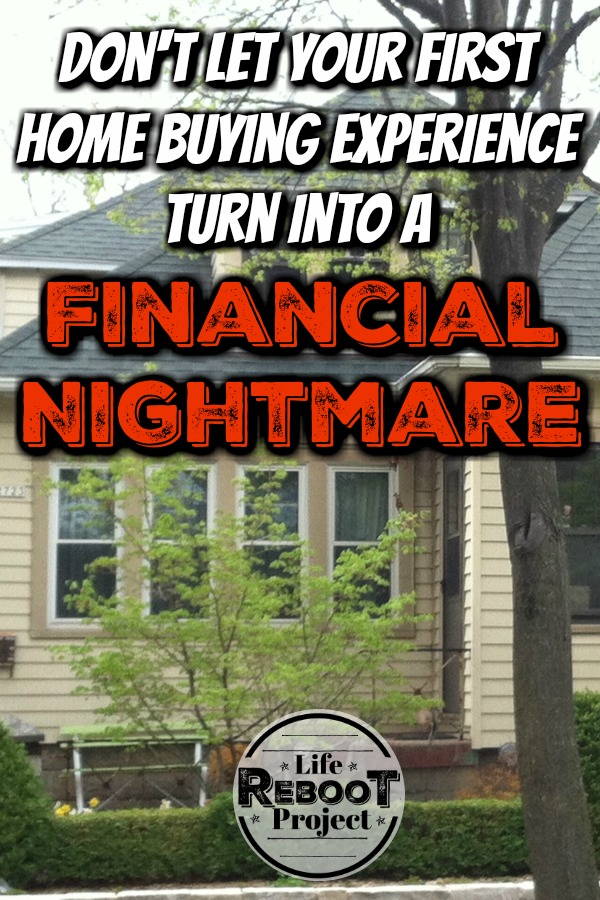If you aren’t careful, that dream house you’ve always wanted could turn into a dark personal finance hole. You’ll never crawl out of it. The proof is 2008. I bought my house in late 2006. When we went for our financing, the banker expressed, that if I ever got into trouble, I to just sell it and get out before it became too late. He told me to make sure it never went into foreclosure. Did he see something coming?
In 2008 the housing market collapsed. Interest rates soared, and families with adjustable-rate mortgages saw their monthly payments double almost overnight. The financial industry destroyed the lives and dreams of families across the country. When the families could no longer afford their monthly payments, the banks foreclosed. Families lost their homes.
I made it through. My monthly payment didn’t budge a dollar. I still have my home today. I’m going to tell you how we managed that so you never have to go through what so many Americans went through.
Buy less of a house than the bank says you can afford
If you have a budget in place, this will be a natural step for you. You need to know how much you have to spend before you even start shopping for a house. I took a free seminar put on by the banker who got me my loan. There was an ad in the newspaper for a free home-buying seminar. It was one of the best time investments of my life. It only lasted an hour, but it probably saved me from financial ruin when I finally did go get my house.
After you get a good idea of what your budget will allow, I’d recommend going to get pre-approved for a home loan. Shop around for the best interest rate and go to the top three places with the best price. Make sure the number you say you can afford and the amount the bank states you can pay are pretty close. If theirs is much higher, they are trying to stuff you into a situation that will put you in over your head.
I won’t do business with a place like that because it’s all a matter of ethics. Remember the story I told you about the warning my banker gave to me? He was looking out for my best interests. It’s the bank’s job to get you into the most significant loan possible, that’s how they make their money. They are not your friend.
Always get a fixed-rate loan
This tip is the big one that saved me. As interest rates soared and the rest of the market crashed, mine stayed the same. Had mine doubled, there would have been no way I could have kept the house. I did do something somewhat unusual though. We have two mortgages on our home. One is a balloon, and the other is a standard fixed rate. To get the rate I was shooting for, I needed to put a substantial amount down. I didn’t have it. So, my banker came up with a two-loan system. The first would be a balloon mortgage to put toward the down payment on the second. I had excellent credit. He told me that was the leverage to get me into that balloon mortgage.
The downfall is that at the end of the term for the balloon mortgage, there is a lump sum due. I’d need to save several thousand dollars to pay off the lump sum at the end. I had a budget. And, I was continually putting money away according to my budget every month. If my calculations were correct, I’d easily have enough to cover the lump sum at the end. A big plus also, every month when my wife makes the monthly payment, she makes a little extra. That has been adding up, so the lump sum at the end will be even smaller than initially anticipated.
You might ask why I just don’t pay off the entire loan early if I have money in the bank I’ve been saving? It’s because I believe, if you have a home, your emergency fund should be higher than it usually would be. I want an emergency fund of at least $10,000. I don’t ever have to worry about putting a new roof on or putting a new furnace in. This extra gives me a good cushion no matter what happens. Let’s move on to the next most crucial safeguard in keeping your home.
Buy an undervalued house
This tip is related to the next section, but a little different. Make sure the home you are looking at is appraised at or higher than the price you will pay. You want to make sure that as soon as you sign the papers, you could potentially walk out the door and sell it for more than you bought it. This idea is difficult. It’s easy to say, but hard to find. So, where do you locate gems like this? Usually, not on the market. Look for foreclosures from banks. Go to estate sales. If there is an estate sale usually the family handling the deal will be extra motivated to sell. You can make a low-ball offer and sometimes they will take it.
I know some people who invest in real estate. They will have no problem offering $20,000 – $50,000 under the asking price. Take your emotions out of the transaction and think of buying your home like a business. One of them bought a multi-million-dollar house for under $500,000. This house had been on the market for a while and after a lot of back-and-forth negotiating, he got it way under value. He’s a savvy buyer. I have no question; when he goes to sell it, he will make excellent money on it. The deals are around; you just have to look for them and not be too eager.
Buy in a buyer’s market, not a seller’s market
This one is a little tough to figure out, but here are some tips to figure out if you are in a buyer’s or seller’s market. First, I need to give you a primer on how interest rates work. The government uses interest rates to control the economy. If the economy is going well, the government raises interest rates to slow the economy. They lower interest rates to spur buying and get the economy moving. If interest rates are going up, house prices are probably pretty high, and the government is trying to slow the economy down. The worst-case scenario is when a realtor tells you there are other interested parties in a property.
Sometimes there is a bidding war where the realtor suggests you offer above the asking price if you want it. This market is a seller’s market, not a buyer’s market. If interest rates are meager, the government is trying to spur the economy, and you might be in more of a buyer’s market. These aren’t accurate indicators. Many factors push the market, but interest rates are something you should watch. The best thing to do is to find out the selling prices of other recently sold houses in the area. Similar to the one in which you are looking. Then look at the assessed value of the same home. They should be close.
Be wise with the improvements you put in to make sure it adds value
This suggestion is more for after you buy that house, not before you sell it. Everybody likes to remodel their home. I hear a lot of people justify the improvements by ‘it adds value to the house.’ In actuality, not all upgrades will add value to their home. Just because you spent $7,000 updating your bathroom doesn’t mean your home value will go up to $7,000. The truth is, it usually doesn’t add any value whatsoever.
The same holds for the difference between asphalt and concrete driveways. Asphalt sometimes won’t add anything to the appraisal value because it is deemed temporary. Concrete is permanent. The city will appraise it at a different level. Research how appraising works in your area before you commit to specific improvements. I’ve seen a lot of people advocate lately for not buying a home. They say after you add up finance charges and maintenance charges, owning your own home isn’t worth it. I still think that it is the American dream. If you can play it smart and pay your house off early, you can have yourself a piece of the idealistic American dream.
Be safe and be well,
Kevin

